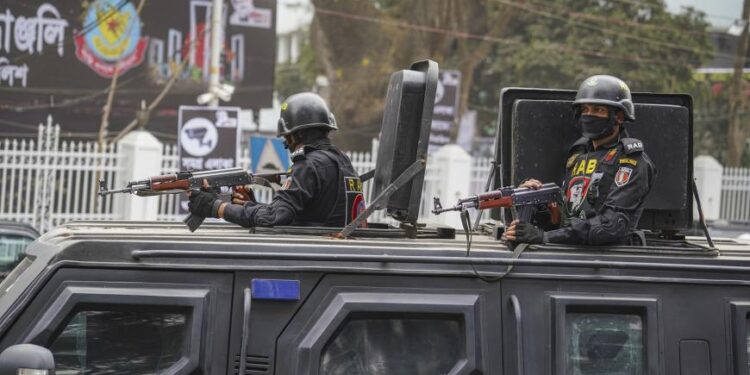Two human rights organisations have asked the government of Bangladesh to ensure accountability and justice for victims of torture, enforced disappearance, and extrajudicial killings.
The World Organisation Against Torture (OMCT) and Odhikar, a human rights group based in Bangladesh, accused the country’s criminal justice system of denying victims of torture access to justice and intimidating their families.
In a joint statement to mark the International Day in Support of Victims of Torture on June 26, the organisations expressed concern that the enactment of the Torture and Custodial Death (Prohibition) Act 2013 had not improved the human rights situation in Bangladesh, and that only three cases were lined up for prosecution and only one had led to the conviction of three perpetrators.
They attributed this to deliberate recruitment of unqualified prosecutors, leading to substandard investigation of cases of torture and custodial deaths.
OMCT and Odhikar said Bangladeshi law enforcement agencies were encouraged to violate International obligations on torture and Article 35 of the constitution because the government rewarded perpetrators.
They added that torture prevailed due to a deeply rooted culture of impunity and custodial torture was an integral part of the country’s criminal investigation process.
“Magistrates who randomly grant the police request for remand for extended periods of time put detainees under risk of torture. Moreover, courts accept coerced statements as evidence in violation of Article 35 of the Constitution and of Bangladesh’s international obligations,” said the statement.
The organisations were concerned that although the police claimed to be equipped with modern technologies, and had benefited from increased capacity building and training sponsored by the country’s development partners, Bangladesh’s human rights record had deteriorated.
They suggested that the resources invested in the law enforcement agencies be accompanied by support for human rights, rule of law, and democracy.
They urged the Bangladeshi government and its development partners to make universal access to justice and accountability for torture, enforced disappearances, and extrajudicial killings their priority.







